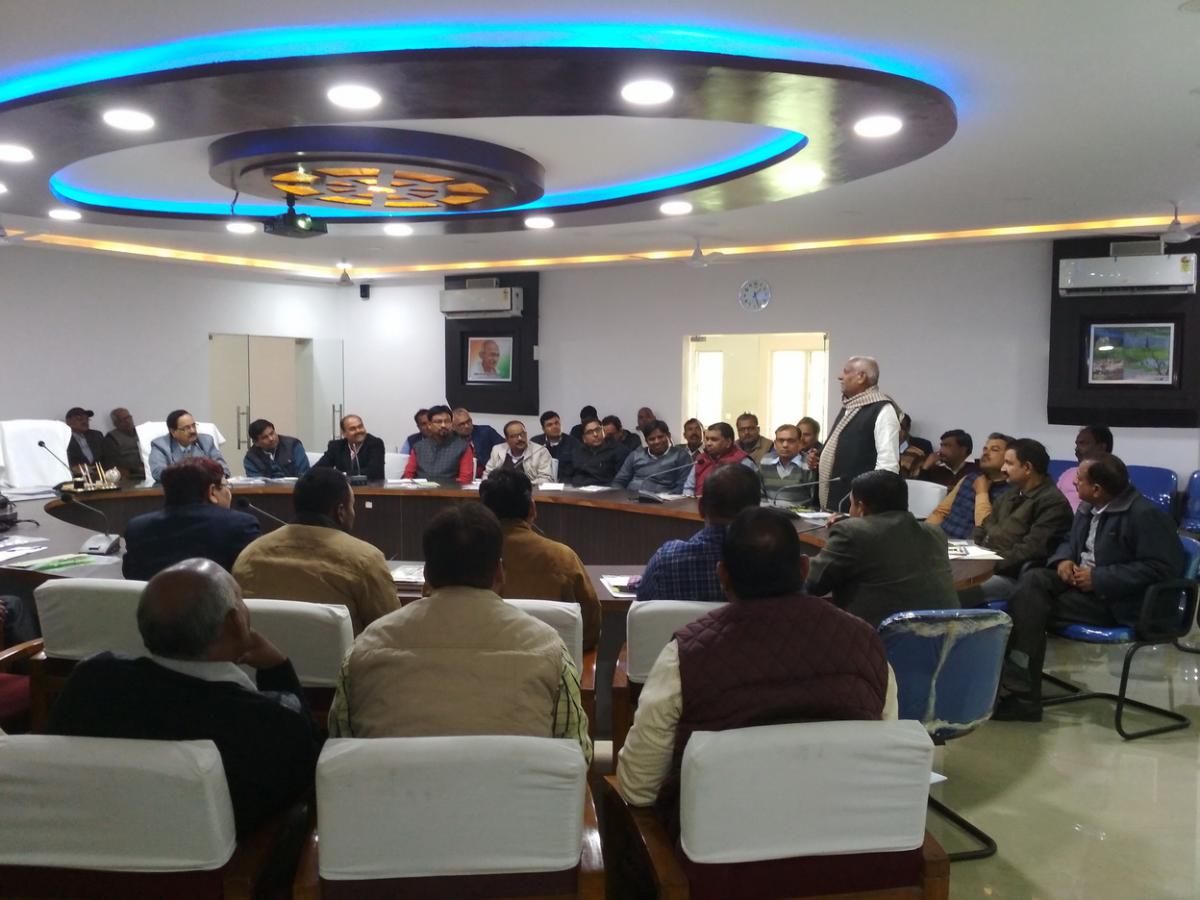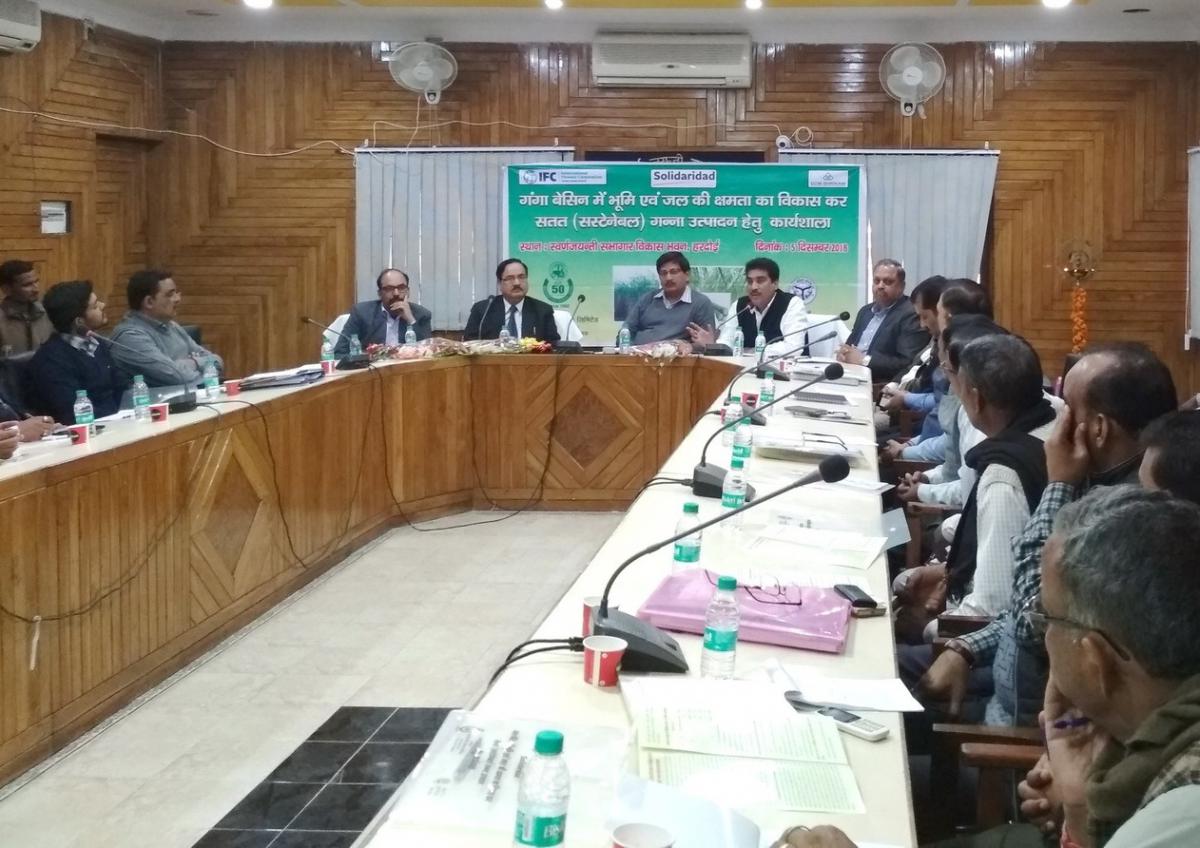
The workshop “Sustainable Agricultural Production in Ganga Basin Through Effective Land and Water Management” was offered in five districts and the state capital in November and December 2018.
The state level workshop took place in December at the Krishi Bhawan in Lucknow, Uttar Pradesh, India. The Director of Agriculture, Government of Uttar Pradesh, Soraj Singh inaugurated the workshop attended by scientists, representatives from sugar mills, the Salinity Research Institute and NGOs. A total of 120 people participated in the workshop.
Improving resource management
The following recommendations for effective management of land and water in the Ganga basin were established:
- The Soil Health Card should contain recommendations regarding chemical characteristics, physical properties and biological attributes essential and suitable for farmers.
- A third of the nutrient requirements must be supplemented by organic manure and two-thirds by chemical fertilizers for sustainable production. In cases where organic manure is unavailable, green manuring must be done every three years.
- Use organic manure, green manuring, residue management to increase the deficiency of organic carbon, import physical properties and improve microbial activities in the soil of Ganga basin for sustainable production.
- Effective conservation of rainwater for crop production, surface water storage for irrigation and groundwater recharge for depleting water tables.
- Raise awareness among farmers about the harms of the wild flooding method of irrigation and use improved surface irrigation practices like the border method, ridge and furrow method, and sprinkler and drip methods.
- Raise awareness among farmers about suitable intercropping for sugarcane and other crops.
- Effective treatment of factories’ wastewater to use treated water for irrigation.
- Reclamation of main canal seepage water logged area through innovations developed by Central Soil Salinity Research Centre, Lucknow.
- Provision of a custom-made hiring centre equipped with a laser leveler, sub-soiler, chiseler, mulcher and other improved machinery with tractors for timely operations.

Gaining institutional support
To encourage cooperation, a memorandum based on the key findings of the workshops will be submitted to the Minister of Agriculture, Government of Uttar Pradesh, in order to bring appropriate changes in the policies of the state government.
The workshops were organized in the districts of Kanpur-Dehat, Sitapur, Hardoi, Shahjehanpur and Lakhimpur Kheri. Key government officials attended the educational event, including:
- district magistrates
- chief development officers
- deputy directors of Agriculture and agriculture officers
- district cane officers
- secretary of cane societies
- officers from Irrigation, Minor Irrigation and other line departments
- representatives of sugar factories including general managers and chairpersons
- representatives of civil society organizations
- Krishi Vikas Kendra scientists
- progressive farmers
- members of the media
The main focus of the district workshops was to increase land and water use efficiency for the sustainable production of sugarcane in the current situation, as well as future requirements for conservation, management and the judicious use of these resources.
